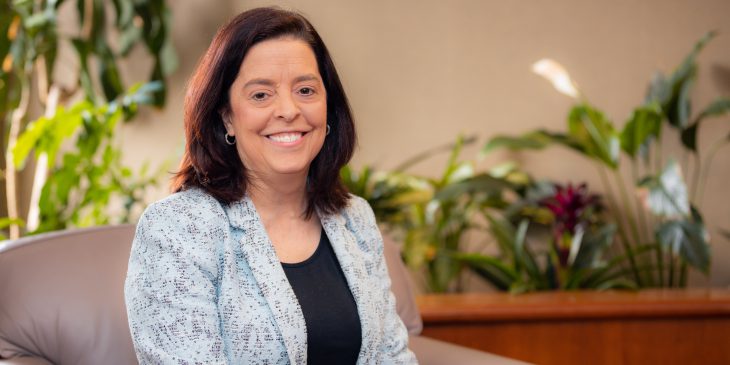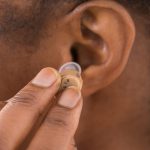Deborah Brodine, president of UPMC Senior Services and president of UPMC Western Psychiatric Hospital and the Behavioral Health Services Network of UPMC, spoke yesterday before the Pennsylvania House Aging & Adult Services Committee. Her testimony, adapted for length, is shared below.
Good afternoon Chairman Day, Chairman Samuelson, members of the House Aging Committee, legislation sponsors and invited guests. Thank you for the opportunity to participate in today’s hearing.
As the virus impacts every corner of the Commonwealth, no group of people are at higher risk than older adults – and no group of organizations will be asked to support them through both prevention and mitigation more than nursing homes and long-term care providers. This is particularly relevant to Pennsylvania as the fourth-oldest state in the percentage of the population age 65 and over, and third in percentage of total population age 85 and over. This older demographic – most at-risk for COVID-19 – is the group most in need of personal care, assisted living and services in a skilled nursing facility.
UPMC Senior Services serves over 3,500 seniors daily in skilled nursing, memory care, assisted living, personal care, independent living and CCRC communities throughout 30 locations in 11 counties including Venango, Mercer, Lawrence, Butler, Allegheny, Washington, Westmoreland, Clinton, Potter, Tioga and Lycoming.
As of today, UPMC Senior Communities has zero COVID+ cases across our 29 facilities.
We have been very fortunate to date. Some of the techniques that we have implemented throughout the crisis have included:
- 1. Restricting all visitors into our skilled nursing and assisted living/personal care facilities: This has been hard on residents and families alike, but it has been an important measure for preventing the spread.
2. Screening all employees every day: This includes symptoms, taking of temperatures and sending staff home if they were symptomatic or had exposures.
3. Implementing social distancing within our facilities where possible.
4. Participating in UPMC’s system-wide approach in implementing personal protective equipment for all of our team members: This is also inclusive of education on the proper use of PPE. We have established regular, formal communications through a command center, which has been connected throughout the crisis to our system command center, for guidance in addressing day-to-day questions related to the operational changes that have been rapid and iterative throughout the crisis, meaning no individual facility has had to ‘go it alone.’
5. Benefitting from access to expertise: In the form of medical leadership in both geriatric medicine and infectious disease, our physician leaders have designed and implemented guidelines for new admissions, as well as for the clinical treatment of symptomatic patients, and for the treatment, cohorting and care of positive patients, in anticipation of identifying them in our facilities.
6. Accessing enhanced testing of residents and staff: Individuals who screened positive for symptoms have been able to receive rapid turn-around on testing because UPMC has recognized our residents as equal priority to other hospital inpatients. To date, we have conducted 77 tests, and again, have been fortunate to have all result negative. Our testing to date has been strictly limited to those with symptoms consistent with COVID. However, we do believe that if testing capacity were not limited, testing of asymptomatic patients, perhaps through random sampling, would be ideal to help earlier prevention of outbreaks.
We are pleased to see that the ingredients of our internal approach are reflective in House Speaker Turzai’s co-sponsorship memo circulated yesterday to establish “regional response health collaborations” to promote health in senior care facilities by supporting COVID-19 readiness and response and improving the quality of infection prevention, while engaging multiple stakeholders.
The legislation would provide an appropriation of $500 million from Pennsylvania’s allotment of $3.9 billion from the federal CARES Act for the COVID-19 pandemic to regional health system collaboratives that support seniors.
Funding would be directed at three areas:
– Enhanced testing
Responsive onsite testing strategy: Testing of residents and health care workers would be prioritized when a facility experiences a potential outbreak or exposure. Onsite testing would be made available through development of mobile SWAT testing teams such as those implemented in UPMC facilities. The response would be coordinated with participation from local EMS companies and local and regional testing laboratories, such as Quest, to prioritize turn-around time.
Establish a surveillance testing strategy: Asymptomatic tests would be performed regularly in small numbers, and results would be shared to better understand the nature of the virus’s asymptomatic transmission and presence in the community. Surveillance testing will inform the Commonwealth on the risk associated with asymptomatic cases, and positive test results will assist with earlier identification of cases within a building, enabling a more proactive approach to infectious disease management that will reduce the viral spread with a structured, disciplined approach.
- – Infection control and consultation
Facilities could fund specific deployment of infection control nurses who could directly observe the ground conditions. These individuals would perform onsite observation and consultation as part of the SWAT team. They would implement infection control practices such as cohorting, PPE use, case detection and staffing practices. They would facilitate completion of exposure tracing studies. Their work would enable an accurate picture of frontline conditions essential to formulation of actionable plans.
– Advanced Clinical Management Assistance
Clinical staff would be available to provide onsite and telemedicine-supported clinical care targeted to long term care settings. This would include access to geriatric medicine, long-term care-specific infectious disease medicine, palliative care medicine and behavioral health specialists. The goal of the advanced clinical management team would enable facilities to treat residents in place when appropriate and assist in transitions of care between acute and long-term care sites.
I have the good fortune to have collaborative conversations with colleagues in senior living and skilled nursing, and I know that our advantages and access to resources is unique. It is clear – that as an industry – our long-term care facilities across the state need help. They need help with resources to address their at-risk population.
Earlier this week, the Pennsylvania Department of Health reported 3,106 deaths attributable to COVID-19. Of those 3,106 deaths, 2,108 were citizens who lived in a nursing home or personal care home. Thus so, 67.9% of those deaths were senior citizens in these nursing homes or personal care homes.
Across the Commonwealth, 9,625 residents of long-term care facilities have contracted the virus, along with 1,284 employees. Cases have been found in 495 long-term care facilities.
Pennsylvania has set up emergency funding for hospitals, but there has been no strategy to assist long-term care providers who are more directly on the front line of preventing the spread of this devastating virus.
The reality is nursing homes in the third-oldest state have not received any increase in state Medicaid program funding, the largest payer of nursing home care, for the past five years, but inflation for health care has increased dramatically. In fact, Pennsylvania has averaged increasing Medicaid rates by barely 1% per year over the last 15 years.
Meanwhile, the cost of providing care has increased 33%. Pennsylvania’s shortage has meant that nursing homes lost a staggering $631 million in 2017-18 alone, according to a 2019 RKL report prepared for Leading Age PA in April 2019. Health care, medications, medical devices, salaries and benefits are all increasing at a rate beyond the control of most facilities.
Our staff at these facilities are some of the most dedicated and hardworking professionals committed to performing duties that are often stressful and physically taxing. They bathe and feed residents, help them with their walking, provide medication, and in many cases, offer the humanity we all desire when we reach an advanced age.
We are grateful for the opportunity to share this testimony, and we stand ready to work with you on any and all long-term care issues before this committee and the legislature.








